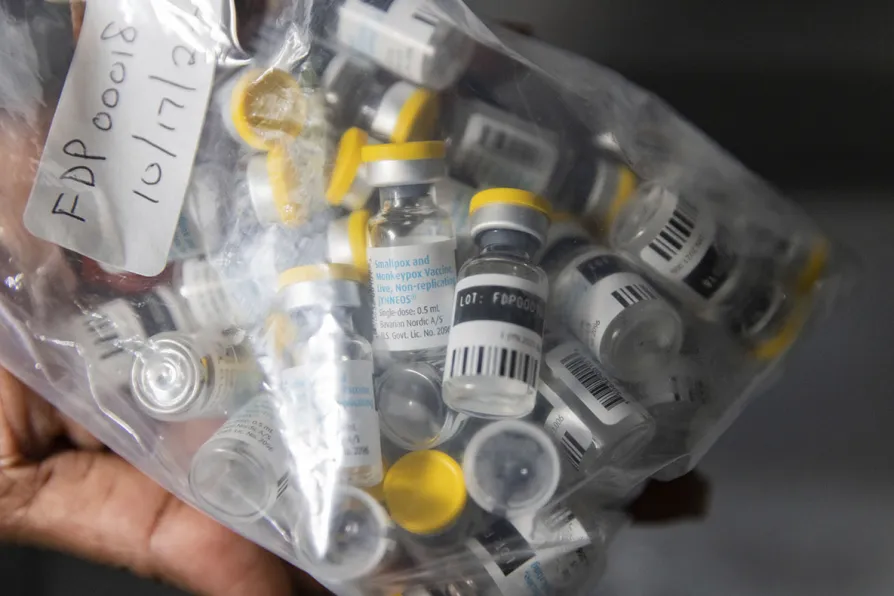WHO experts to consider declaring global emergency over spread of mpox virus in Africa

 Vials of single doses of the Jynneos vaccine are seen from a cooler at a vaccinations site on August 29, 2022, in the Brooklyn borough of New York
Vials of single doses of the Jynneos vaccine are seen from a cooler at a vaccinations site on August 29, 2022, in the Brooklyn borough of New York
WORLD Health Organisation (WHO) director-general Tedros Adhanom Ghebreyesus is to convene an expert group to determine whether the growing spread of the M-pox virus in Africa should be declared a global emergency.
Mr Tedros told a press briefing in Geneva on Wednesday that, given the increasing appearance of M-pox cases beyond the Democratic Republic of Congo (DRC), he had decided to ask independent experts to advise the WHO “as soon as possible.”
The Africa Centres for Disease Control and Prevention (Africa CDC) reported last week that m-pox, also known as monkeypox, has now been detected in 10 African countries this year, including Congo, which has more than 96 per cent of all cases and deaths.
Similar stories














